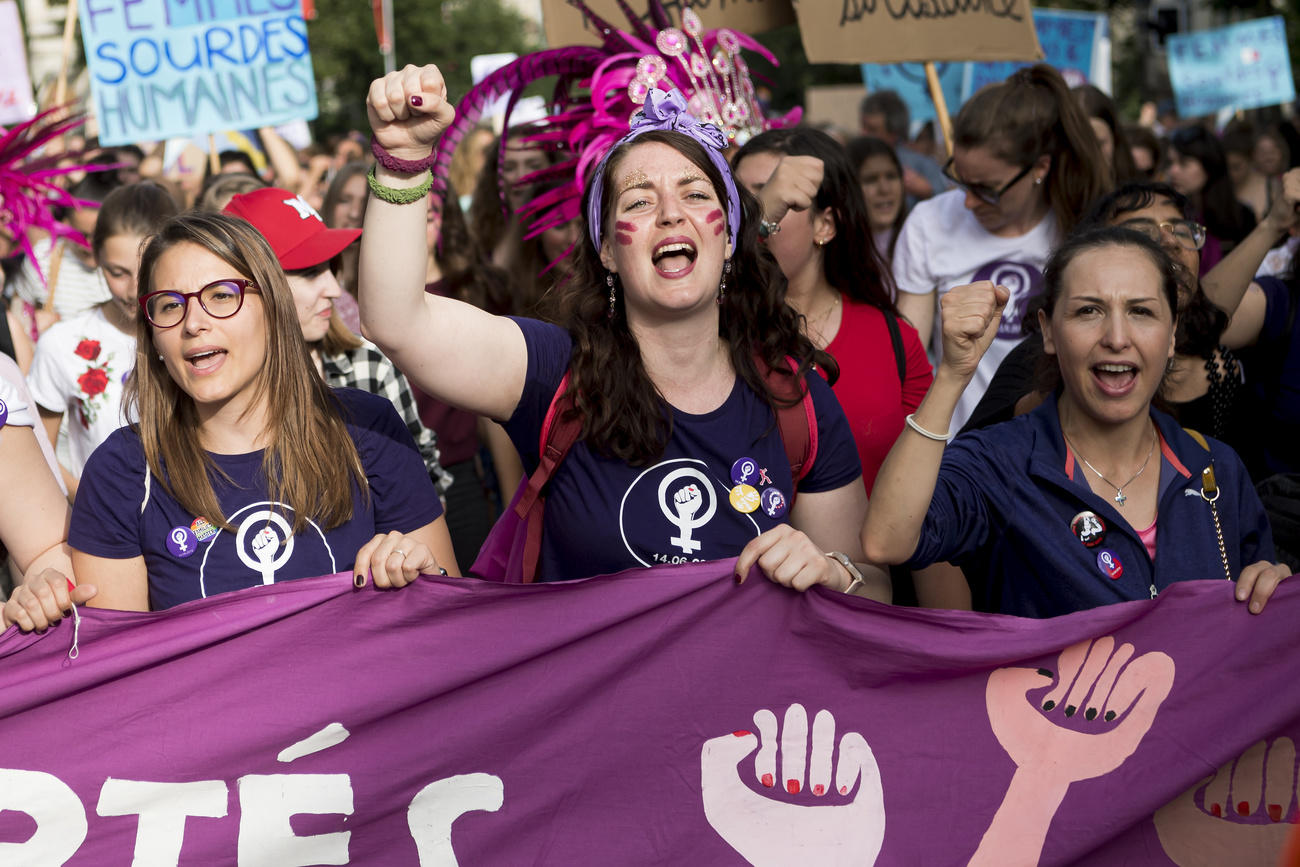
Women across Switzerland repeat 2019 demand for greater equality
Hundreds of women demonstrated on Sunday across Switzerland demanding greater equality between the sexes. Last June 14, Swiss women staged historic nationwide demonstrations that mobilised more than half a million people and sparked debates on issues ranging from equal pay to the allocation of childcare responsibilities in society.

The main slogans chanted this year by women in Zurich, Bern, Basel, Lausanne and Bellinzona, once again reflected feminist demands. Others focused on environmental issues and racism, which has become global focal point of protests following the death of an African-American man in police custody in the United States.
Due to the coronavirus, the demonstrations took place in a decentralised fashion with activities peppered throughout the day. For example, a feminist race was held in the capital, Bern.
In Lausanne, women staged their first rally overnight. About 15 topless women demonstrated on one of the footbridges later on Sunday. People chanted “solidarity with women around the world.”
In the southern city of Bellinzona about 200 people paraded through the Old Town before laying out a large mosaic that spelled out the word “Respect”.
In Basel, home to major pharmaceutical companies, about 150 demonstrators ended their strike with a dip in the river Rhine at 15:34. That is the average time that, according to statistics on the wage gap with men, marks the end of paid work time for women.
Women also turned out to demonstrate in the French-speaking cities of Geneva, which boasted the country’s largest crowd with an estimated 2,000 people, and Fribourg in western Switzerland.

More
Huge turnout for women’s strike in Switzerland
Purple was again the official color of these female-led gatherings but its use was not as widespread as in 2019. Last year’s protests organised by trade unions came almost three decades after a 1991 strike, when women demanded that a constitutional article on equality of the sexes be translated into concrete legislation.
Women say unequal treatment persists, including lower pay, with women on average earning 20% less than men. Discrimination and the difficulty of combining work and family are also issues preoccupying Swiss women.

In compliance with the JTI standards
More: SWI swissinfo.ch certified by the Journalism Trust Initiative






























You can find an overview of ongoing debates with our journalists here . Please join us!
If you want to start a conversation about a topic raised in this article or want to report factual errors, email us at english@swissinfo.ch.